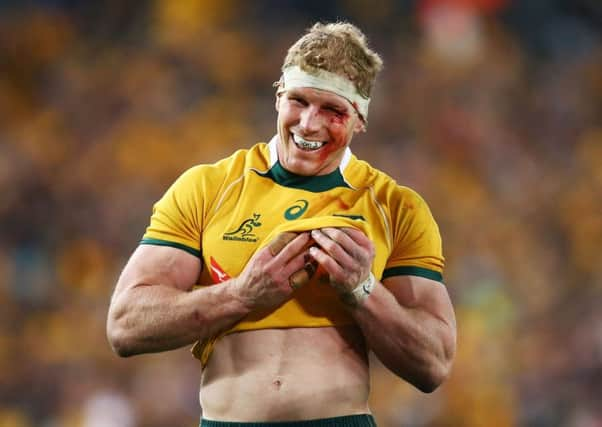Allan Massie: Time catching up with All Blacks


This looks like a marginally stronger Irish team than the one which demolished Wales last week, the feeble Welsh performance and result seemingly ending the long international careers of Mike Phillips and James Hook, possibly Richard Hibbard also. Time catches up cruelly with everyone.
It may – whisper it only – be catching up even with some of the great All Blacks. Australia’s win in Sydney was no fluke; they were by some way the better team on the day. Their decision to play two No 7s – Dan Pocock and Michael Hooper – paid off. They even outplayed Richie McCaw. From the All Black point of view the worrying and uncharacteristic thing was that, when they got their nose back in front, 19-17, they didn’t take charge of the game but instead gave away a penalty which was kicked, and then a try, courtesy of a missed tackle. I daresay that, by the time you read this, the All Blacks will have had their revenge in the second round of the Bledisloe Cup. New Zealand will still start as favourites for the World Cup. All the same, Australia will have given every other contender a little boost.
Advertisement
Hide AdAdvertisement
Hide AdThey will also have set alarm bells ringing in England. Over the years England have usually beaten the Wallabies because they have been able to destroy them in the set scrum. But now Australia have out-scrummaged New Zealand, South Africa and Argentina. The recruitment as scrum-coach of Mario Ledesma, great hooker himself for Argentina and Clermont-Auvergne, looks like a master-stroke. If Australia maintain this level of performance in the set scrum, they can beat anyone. Their chief problem is then which of their richly talented array of backs they choose to leave out.
The big surprise last weekend was Argentina’s defeat of South Africa. The Springboks seem to have been trying to play a more expansive game, and not quite bringing it off. Moreover they are again mired in controversy about the level of black representation in their squad, and this may be disturbing. South Africa are of course still favourites to top the pool we are in, but Argentina’s victory should give the Scottish players a little lift. There has rarely been much between Scotland and Argentina, and, if the Pumas can beat the Springboks in Durban, why shouldn’t we do so in Newcastle?
In today’s Scotland XV Ruaridh Jackson and Greig Tonks are both seemingly being asked to prove their versatility, with the former, normally a 10, at full-back, and the latter, mostly a 15, at fly-half. The interesting thing is that there is probably a vacancy for the second full-back position in the final squad of 31, while Finn Russell and Duncan Weir are both likely to be included as fly-halves. Of course Vern Cotter may ultimately decide that, with Sean Maitland and Sean Lamont among his wings, there is no need for any other back-up to Stuart Hogg. Still, it’s quite likely that either Jackson or Tonks may survive the final cull, even though Peter Horne, who will surely be picked as an inside centre, is capable of playing fly-half, too. Richie Vernon, Horne’s partner in the centre today, wins his first cap since he made the transition from the back-row of the scrum, a considerable achievement and an unusual one, even though Stuart Lancaster has named the rugby league convert Sam Burgess at centre for England against France, despite the fact that most of his appearances for Bath have been as a No 6. Mind you, back in the 1930s the great Danie Craven played at both scrum-half and No 8 for South Africa.
It’s difficult to know how much significance to attach to these warm-up games. Whereas the southern hemisphere countries have all been fielding their strongest available XVs in the Rugby Championship with only a few experiments, only about half the Ireland side today, and an even smaller proportion of the Scotland one, might be expected to start in the hardest World Cup games. That said, it’s very unlikely that many players will appear in all four pool matches – four games in fewer than four full weeks. For Cotter, the schedule will make selection difficult, because what are likely to be the hardest matches – against Samoa and South Africa – come after the two, Japan and the USA, which we are expected to win – even though both of these opponents are much-improved sides, not to be taken lightly.